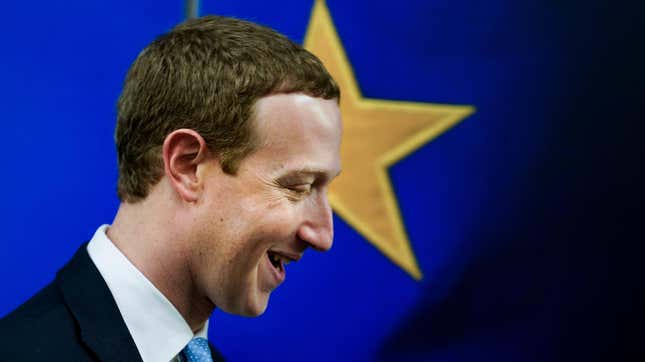
WhatsApp was already primed for commerce long before Mark Zuckerberg started gunning for it.
For years, entrepreneurs across India and Africa have made ad-hoc WhatsApp groups and lists for broadcast messages to share their catalogs and take orders. Then, four and a half years ago, WhatsApp officially debuted a business version of its app. It became a lifeline for small businesses and their customers during the pandemic. It’s become so embedded in daily life that a WhatsApp outage actually costs people their jobs.
The pandemic boosted another commerce platform owned by Meta: Facebook’s Marketplace got a new lease of life. But the social networking site is nowhere near as ubiquitous as the messaging app—especially in the developing world. Gen Z is logging onto Facebook, but spending way less time on it compared to other social media platforms. And considering Facebook’s usage shrunk for the first time in February this year, WhatsApp looks like a better bet.
So far, the world’s largest messaging app has mostly been a hub for communication. Now, Zuckerberg wants to tackle discoverability, too. Instead of leaving the app to find stores and their contact details, users will be able to search for it within the app.
“We want to make it easier for people to get more done on WhatsApp. Part of that is building better ways to engage with businesses. And while millions of businesses in Brazil use it for chat, we haven’t made it easy to discover businesses or buy from them, so people end up having to use work-arounds,” the Meta chief announced at the first-ever WhatsApp Business Summit in Brazil today (Nov. 17). “The ultimate goal here is to make it so you can find, message and buy from a business all in the same WhatsApp chat.”
How will WhatsApp turn into a Google for customers searching for businesses?
In 2021, WhatsApp piloted a yellow pages-like feature in São Paulo, Brazil, which allowed people to look up businesses within the app. With this latest announcement, it’s expanding the directory feature to all of Brazil’s businesses, big and small.
Users in Brazil will be able to…
👀 look for enterprises either by name or by sifting through categories such as travel or banking
❓ ask product questions
📙 browse the catalog of goods and services
🛒 add items to a cart
💸 and make a payment (this last step has launched in India, but is in testing mode in Brazil)
Larger companies using the WhatsApp Business platform in Indonesia, Mexico, and the UK will be able to use the feature, too.
By the digits: WhatsApp in Brazil
147 million: Brazilians who use WhatsApp
87%: Proportion of small and medium sized Brazilian companies that believe WhatsApp improves communication with customers. Almost as many see the app as a business expansion opportunity
76%: Share of Brazilians who use WhatsApp to interact with brands and businesses
55 times: How much more expensive SMS cost in Brazil compared to North America when WhatsApp entered the market in 2009
WhatsApp Pay in limbo in Brazil
In 2020, WhatsApp rolled out a payments feature in Brazil, but rolled it back within a week, after pushback from the central bank. Since then, its payment future hangs in the balance.
In Brazil, the central bank requires WhatsApp to partner with the local firms to process consumer-to-business electronic payments. In April this year, a Financial Times report said Meta was struggling to find partners owing to contractual issues, thus failing to meet regulatory approval. The latest announcement doesn’t address the status of WhatsApp’s run-in with authorities, but says the company is “testing” in-app credit and debit card payments in Brazil “with multiple payment partners.”
Another feature in Zuckerberg’s haphazard super-app hat
Facebook Marketplace and WhatsApp Business in their current iteration only scratch the surface of Zuckerberg’s attempts to keep users within the Meta universe. He wants the apps to become the place where people chat, call, order goods and services, pay bills, and more. Photo-sharing app Instagram—or should it be video-sharing now that Reels are all the rage?—is also turning into a virtual mall of shorts with shopping tags and tabs. Even in the virtual world, the company is so committed to monopolizing people’s time that it even renamed itself to become the self-proclaimed leader of the metaverse.
Oh and, Facebook has a dating feature. (Spoiler alert: it’s no good.)
Related stories
🌐 Facebook was on the defensive for years—until the metaverse came along
📱Does WhatsApp still have a future in India?
🛍️ Social commerce is becoming an important business model in Africa